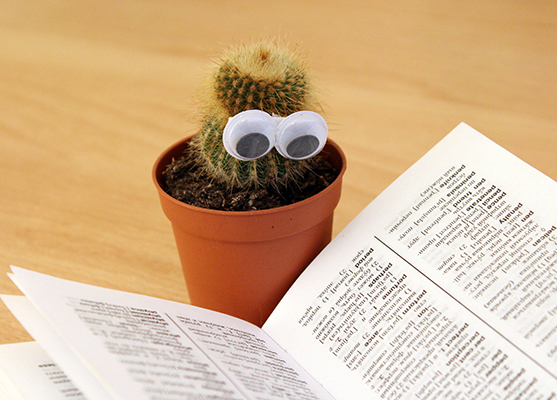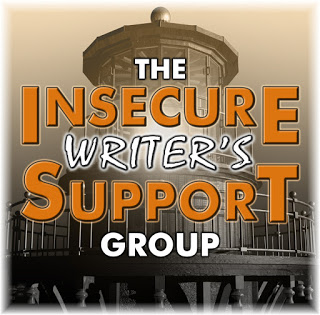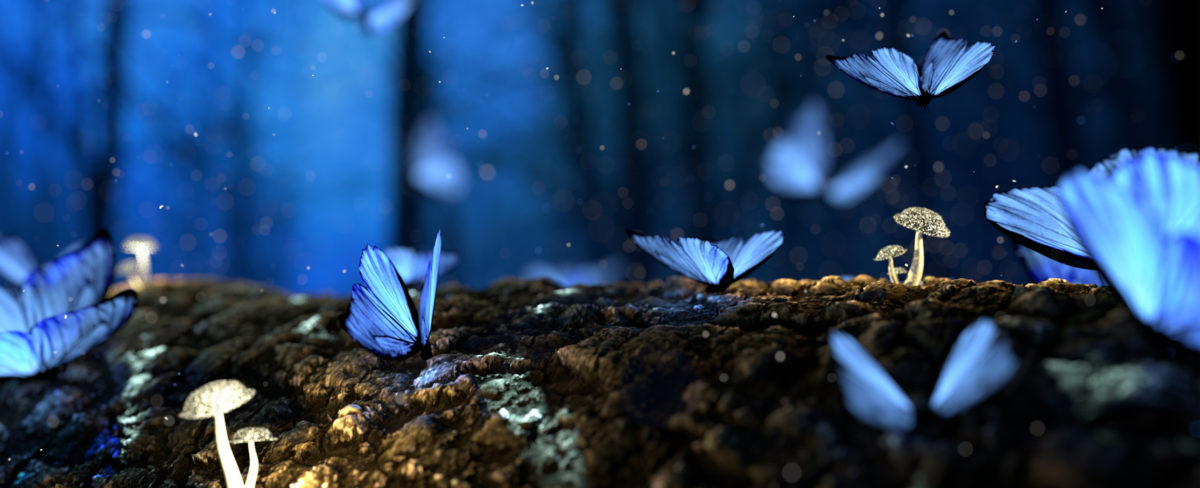 Writers are intimidating. Many may be awkward, even antisocial, but most are well-read and that can be daunting to someone who isn’t. I have never considered myself well-read. Maybe a decade or three from now I might, but I definitely don’t now.
Writers are intimidating. Many may be awkward, even antisocial, but most are well-read and that can be daunting to someone who isn’t. I have never considered myself well-read. Maybe a decade or three from now I might, but I definitely don’t now.
As a child, I wasn’t a reader. My childhood was spent coloring, singing, trailblazing, and playing video games (mostly by myself as my family lounged, their noses perched over a good book).
Some days I still don’t think I am a reader. I don’t have that love I see in readers’ faces when they talk about the smell of ink on paper or the tactile feeling of a book in their hands. To be honest, I am kind of jealous of the reverent passion they have for books. The only thing that accompanies the musty smell of old books in my mind is horror at the volumes of dust they are hiding and how many Benadryl I will need to take to feel normal. (Well as normal as you can feel half-asleep on Benadryl but at least able to breathe.)
 Now before you rage-quit this article thinking she can’t be a writer because she doesn’t read, I do read. More than most. Now.
Now before you rage-quit this article thinking she can’t be a writer because she doesn’t read, I do read. More than most. Now.
Before I decided to “be a writer”, I mentioned in passing that I was thinking of writing a novel to my husband. He looked at me knowing my lifetime adversity with reading (it’s weird being the black sheep of your family because you don’t read) and said, “If you are going to write, don’t you think you should read?” It made complete sense. You don’t become a doctor by diagnosing people and doling out medicine before studying. Reading was the obvious first step. I can’t comprehend anyone who would think that they could craft a story without reading to see how others do it. Learning is the first part of being proficient at anything.
So, I read for a year before I started writing. I burnt through more than a book a day. I would joke to family and friends when they came to visit that they were messing with my BPD (my book-per-day pace). And since that year I continue to read as much as I can. I still don’t think I am a reader, but I do appreciate a well-written story.
Why Fantasy?
When I was considering this month’s question about what I love about writing my genre, I got stuck. I took a hard look at why I create speculative fiction and not something else. I thought about the reading habits of my youth and how when I was younger I would avoid reading speculative, especially fantasy, more than any other genre.
A simple answer to why I write speculative fiction is that I was exposed to it, a lot. My brothers avidly read speculative. They would hand me book after book that I refused read. But to converse with them, I absorbed the information about the genres through conversations instead of books.
However, I don’t think I write fantasy because it has been a pervasive force in my life or because I am writing what I know. I think the key to why I write fantasy is because my love of story didn’t come from books but from role-playing games.
 My first role-playing game had me in tears because I couldn’t win a game of chess with a dragon. I didn’t even know how to play chess. Heck, I didn’t even know the names of the pieces when I was four. Luckily the dragon had a soft spot for little girls and lost terribly to me at checkers due to his “lack of skill” at the game. Despite this less than auspicious start, I fell in love with being a part of a story created by someone else. I loved influencing it and changing it.
My first role-playing game had me in tears because I couldn’t win a game of chess with a dragon. I didn’t even know how to play chess. Heck, I didn’t even know the names of the pieces when I was four. Luckily the dragon had a soft spot for little girls and lost terribly to me at checkers due to his “lack of skill” at the game. Despite this less than auspicious start, I fell in love with being a part of a story created by someone else. I loved influencing it and changing it.
Books were too static. I wanted to make the story with the writer not have them tell me it. I would get bored reading, but I would take the author’s world and imagine my own version of the story. When I came back to the book, I lost interest in their world wanting to build more in our world (mine and the author’s).
By middle school, I drifted farther from reading and started creating my own worlds and stories. I invited my friends to join in the story creation game by acting out their own characters in the scenes and scenarios I created. I would reconstruct these verbal stories in print and piece them together, trying to make a novel. (Great for distinct characters. Terrible for plot and continuity.)
This “game” lacked rules so it wasn’t a role-playing game. My friends and I would simply create stories together, collaboratively. I thrived on it.
 In high school, my friends’ interest in playing these stories dwindled at the same time my brother invited me to my first gaming convention. I was sucked into convention role-playing. The games filled my need to create stories.
In high school, my friends’ interest in playing these stories dwindled at the same time my brother invited me to my first gaming convention. I was sucked into convention role-playing. The games filled my need to create stories.
Role-playing games are collaborative story-telling at its best, in my opinion. A group comes together with their own bits of creation and weave them together into one whole. They tell a story that shifts and incorporates the creative energy of each of the people joining in. The story becomes a living, changing thing and as a player, you are a part of it.
Like most who role play, I started playing high fantasy role-playing games. I tried other genres—supernatural, horror, scifi—as the years went by. I quickly volunteered to help run things and even authored and co-authored several modules that were published and ran nationally.
 Unfortunately, as I got drawn deeper and deeper into running conventions it was harder to find the spark that drew me to it. I got burned out on the politics and had to walk away. I couldn’t even attend to play anymore. It was just too hard for me to say no to helping when I knew firsthand how hard it was to find help.
Unfortunately, as I got drawn deeper and deeper into running conventions it was harder to find the spark that drew me to it. I got burned out on the politics and had to walk away. I couldn’t even attend to play anymore. It was just too hard for me to say no to helping when I knew firsthand how hard it was to find help.
However, without the games there was a hole left behind. I had nothing to fill my need to create stories. I let that emptiness sit there for years until I decided my life needed to change and took the risk to pursue something new.
When I chose writing, the hole left behind filled up. And no matter how much I write, the need to story tell is still there. Writing is different from role-playing but story drives them both.
The simple truth is I write speculative because of my years spent gaming. The creative energy of the thousands who attended conventions provided a fuel that drives me to this day. The joy of creating stories with hundreds of others still fills my heart. I tell the stories that had their seeds sown in those years creating with others. I write to share these stories because for me stories have always been a shared experience.
Let me Count the Ways.
Back to this month’s IWSG’s question, what do I love about writing in my genre?
 Freedom
Freedom
Anything you can conceive is possible. You dream it, and you make it exist. There is endless potential in speculative. The only limit is your imagination. It is a heady feeling when you are creating.
Control
When you write in speculative you have control over everything, even the laws of physics. For a closet-choleric personality like mine, this kind of control draws me like a knitter to a yarn shop. Writing speculative lets me exert control without affecting anyone. The best kind of control to exert, in my opinion.
 Reflection
Reflection
In a perfect world, we could discuss any topic with open-minds, but the world we live in is far from perfect. People don’t like being told their ideas about something are narrow-minded, short-sighted, or just plain wrong. Speculative fiction allows you to approach sensitive topics by using a fantastic world to reflect ours. It provides a lens to shine light on issues in a less direct way and allows the exploration of a topic without the baggage of our world history. The story can provide a different perspective than a person may be capable of experiencing or recognizing in real life. I like to think it can sow the seeds of change before society is ready to pursue the change.
Research
With all that freedom and control, as a writer of speculative, there are lots of rules you have to follow. You need to understand how things work in the real world to make your fictional one feel real. This means a lot of research on a bevy of topics. Everything from world cultures to physics is open game for the foundations of world-building in speculative. As a former researcher, this fills my endless drive to learn more and comb through research papers. Every new fact I can weave in makes my world more believable and vivid. Of course, not all of it ends up in the prose, but the clearer the image in your mind the more your reader can feel the things you never say.
Attention to Detail
In most speculative, you can’t fall back on a web search to remember the size of the town you created or descriptions of various people or places. The world you create and all the rules it follows have to be consistent otherwise you destroy the trust your reader puts in you. (And speculative readers put more trust in their authors than other genres.) The absolute freedom and control of the genre lead to a lot of details that need to be tracked. A dream come true for someone who likes to organize and plan things.
 Adorable Creatures
Adorable Creatures
Speculative fiction has the best creatures. You can take all the cute bits of critters and combine them into a ball of adorable. This may not seem like a monumental reason to write in a genre, but I have always had a soft spot for creatures—big, small, furry, scaly, and slimy. In my second-grade autobiography, my answer to the question if you could have anything, what would you wish for was a blue winged-lion named Glimmer. And let’s not even mention the vast unicorn collection I treasured as a girl. (No seriously, we aren’t going to talk about it because it’s embarrassing. Almost as embarrassing as the fact that I still own most of them.)
Optimistic Readers
Speculative fiction is a unique because of the trust formed between reader and writer. The reader trusts the writer to reveal the world and all the details you need to understand the story, details in other genres are already known because they take place in our world and follow our rules. A reader gives a writer the benefit of the doubt, trusting a complete stranger to live up to their expectations each time they start a new story. A sparkle of optimism in a frequently cynical world.
~Fin~
RPGs
Looking to check out some roleplaying games for yourself? Here are a few I have played.
Photo Credits
Main Image-Magic by Stergo – cropped
Magic Girl by RondellMelling
Prickly Reader by klimkin
Old Books by jarmoluk
Gaming Convention by COD Newsroom
Witcher Cosplay by jensjunge
Bard Before City by peter_pyw
Self Esteem by geralt
Adorable Monster by StarGlade
 Created by Alex J. Cavanaugh, the IWSG’s purpose is to share and encourage. Writers can express doubts and concerns without fear of appearing foolish or weak. Those who have been through the fire can offer assistance and guidance. It’s a safe haven for insecure writers of all kinds!
Created by Alex J. Cavanaugh, the IWSG’s purpose is to share and encourage. Writers can express doubts and concerns without fear of appearing foolish or weak. Those who have been through the fire can offer assistance and guidance. It’s a safe haven for insecure writers of all kinds!
To join, simply sign up by clicking on the button below and adding your name to the linky list. Then post the first Wednesday of each month and visit your fellow bloggers to lend your support.
This month’s co-hosts are Stephen Tremp, Pat Garcia, Angela Wooldridge, Victoria Marie Lees, and Madeline Mora-Summonte!
This month’s optional question: “What do you love about the genre you write in most often?”






A book per day is so impressive. I’m at a book per week. I read a book per day when I was a pre-teen, but I don’t think I could ever get back to that pace again. Good for you! And yea that you joined IWSG!!! Woohoo!
A story is a story, no matter how it finds you or you find it. I was never much into role-playing games when I was a kid, but I can absolutely see now how much story is involved.
A book per day pace! That’s pretty awesome. I love all your reasons for writing fantasy. Especially adorable creatures! Have a great rest of your day!
Enjoyed talking with you about this today. Really interesting how your background in RPG helps you as a writer. Thank you for your help.
This is an excellent post, Erika! I always love all your pictures/photos on your blog. They truly enhance your posts. I need to do this, I keep telling myself. You offer great insight here about research and knowing how things work in the real world first before creating your fictitious world. Oh and by the way, I’d love to say I could find time to read a book a day. I love reading but have limited time. Welcome to IWSG. We are truly lucky to have you a part of the group. All best to you!